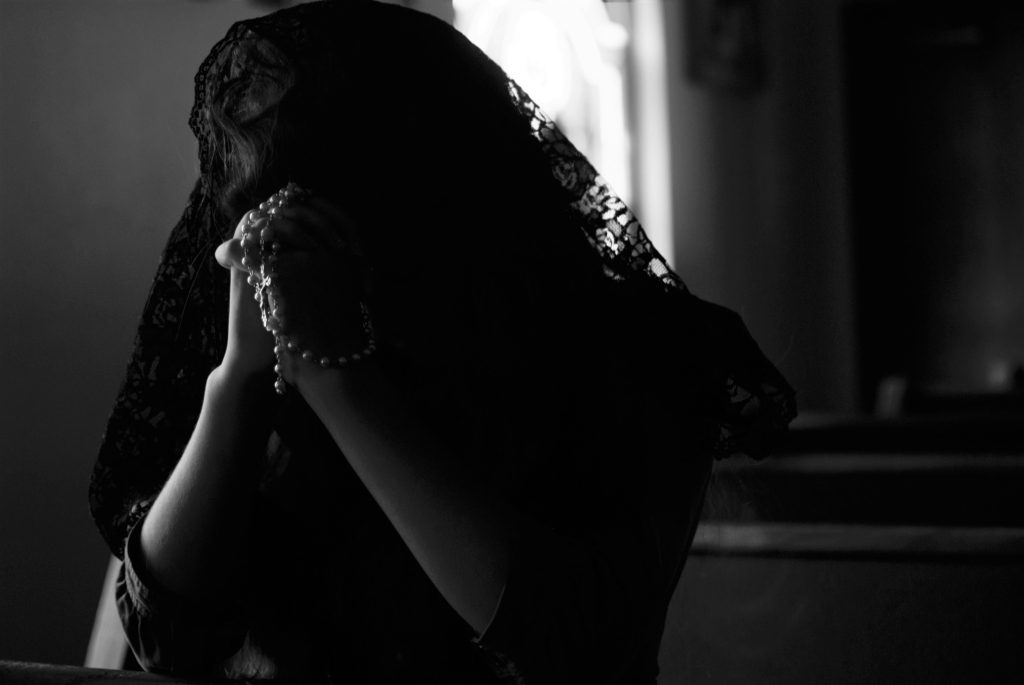
In the tapestry of relationships, marriage is often portrayed as a sacred bond, a union blessed by faith and fortified by love. However, lurking beneath this picturesque facade, there exists a grim reality for many individuals trapped in the clutches of narcissistic abuse within Christian marriages. It’s a subject veiled in secrecy, shrouded by societal expectations and misconceptions. Today, we peel back the layers to uncover why narcissistic abuse is so clandestine, its disproportionate impact on women, and why breaking free from such toxic bonds is paramount.
Firstly, let’s address the elephant in the room: why is narcissistic abuse so hidden within Christian marriages? Picture this: a couple seated in the front pew of a church, wearing matching smiles and holding hands. From the outside, they appear to be the epitome of marital bliss, upheld as role models for the congregation. But behind closed doors, the dynamics are vastly different.
In many Christian communities, there exists a culture of silence surrounding marital issues. Admitting to problems within the sanctity of marriage can be perceived as a sign of weakness, a failure to uphold the sacred vows made before God and witnesses. This pressure to maintain a facade of perfection often forces victims of narcissistic abuse into isolation, fearing judgment and condemnation from their faith community. They may internalize the belief that seeking help or leaving the marriage is tantamount to spiritual failure, further perpetuating the cycle of abuse.
Moreover, narcissists are adept manipulators, skilled at charming those around them while wielding power and control behind closed doors. Within Christian circles, where forgiveness and redemption are core tenets of faith, narcissistic abusers may exploit these beliefs to justify their behavior or manipulate their victims into staying silent. Victims may be gaslit into believing that their suffering is a test of faith or that they must endure the abuse to fulfill their marital duties. As a result, the abuse remains hidden, buried beneath layers of shame and guilt.
Now, let’s explore why narcissistic abuse disproportionately affects women within Christian marriages. While abuse can certainly occur in any relationship regardless of gender or faith, there are certain societal and cultural factors that contribute to its prevalence among women in Christian contexts.
Traditional gender roles and patriarchal norms often perpetuate power imbalances within Christian marriages, providing fertile ground for narcissistic abuse to thrive. Women may be socialized to prioritize the needs of their husbands and families above their own, making them more vulnerable to manipulation and exploitation. Additionally, interpretations of scripture that emphasize submission and obedience can be weaponized by abusers to exert control over their spouses, further entrenching the cycle of abuse.
Furthermore, the stigma surrounding divorce within Christian communities can trap women in abusive marriages, leaving them with few viable options for escape. The fear of being ostracized by their faith community or losing custody of their children may outweigh the desire for liberation from their tormentor. As a result, many women suffer in silence, their voices silenced by the weight of societal expectations and religious dogma.
But why is it crucial for victims of narcissistic abuse in Christian marriages to break free from their tormentors? The answer lies in the devastating toll that prolonged exposure to abuse can exact on one’s physical, emotional, and spiritual well-being. Narcissistic abuse is not just about hurtful words or occasional outbursts; it’s a systematic pattern of manipulation, gaslighting, and psychological torment designed to erode the victim’s sense of self-worth and agency.
For women in Christian marriages, the repercussions of narcissistic abuse can be particularly profound. It can distort their understanding of God’s love, causing them to equate suffering with spiritual virtue and resigning themselves to a life of silent suffering. It can also damage their mental health, leading to anxiety, depression, and even suicidal ideation as they struggle to reconcile their faith with the harsh realities of their marriage.
Breaking free from narcissistic abuse is not easy, especially within the confines of a religious community that may not fully understand or acknowledge the severity of the situation. However, it is essential for victims to recognize that they are not alone and that help is available. Whether through counseling, support groups, or legal assistance, there are resources available to empower victims to reclaim their lives and break free from the cycle of abuse.
Moreover, it is crucial for Christian communities to confront the scourge of narcissistic abuse head-on and create safe spaces where victims feel supported and validated. This includes educating clergy and congregants about the warning signs of abuse, challenging harmful interpretations of scripture that perpetuate gender inequality, and fostering a culture of accountability and compassion.
In conclusion, narcissistic abuse within Christian marriages is a pervasive yet hidden reality that disproportionately affects women. Its clandestine nature is perpetuated by societal expectations, cultural norms, and religious beliefs that prioritize the preservation of marriage over the well-being of individuals. Breaking free from narcissistic abuse is not only a matter of personal liberation but also a testament to the inherent worth and dignity of every human being. It is time to unveil the veil, to shine a light on the darkness of abuse, and to offer hope and healing to those who have suffered in silence for too long.

